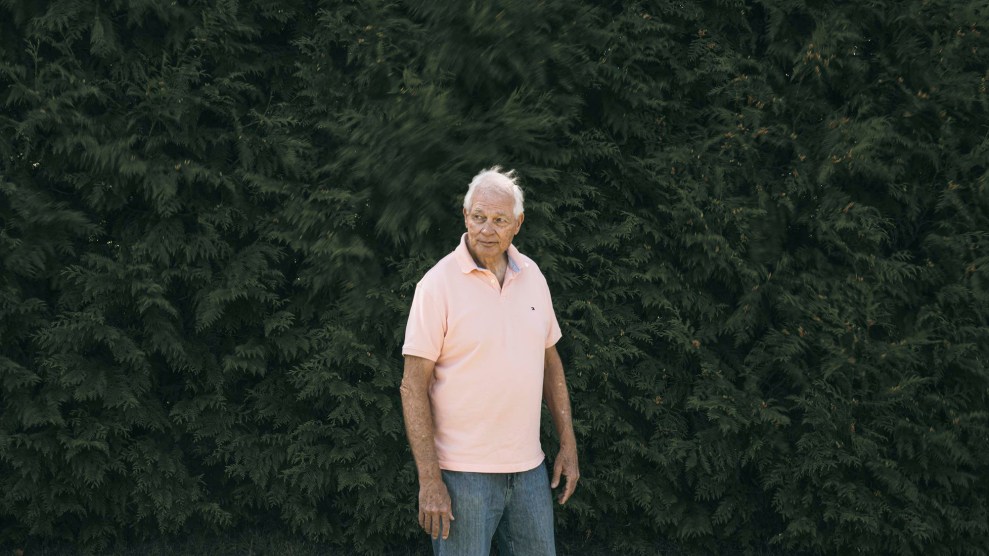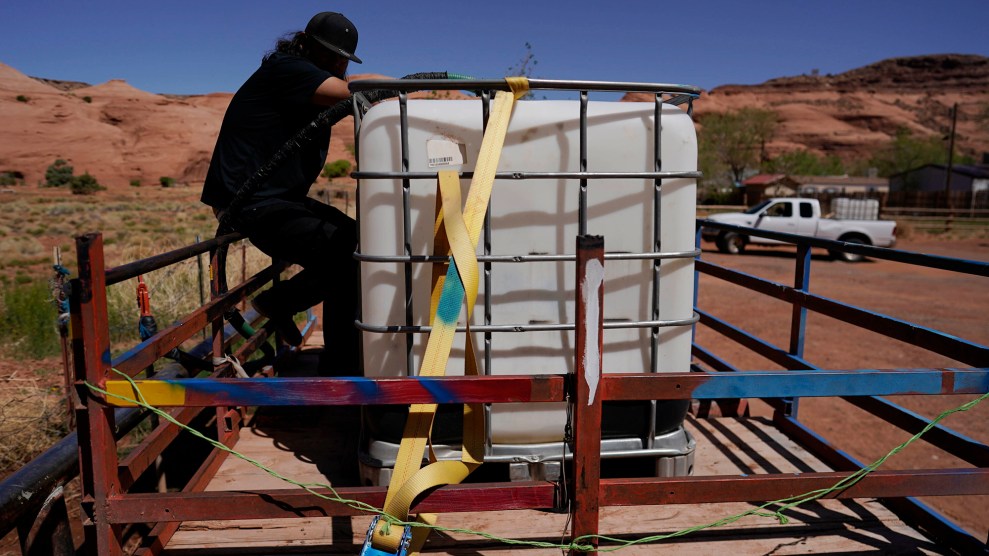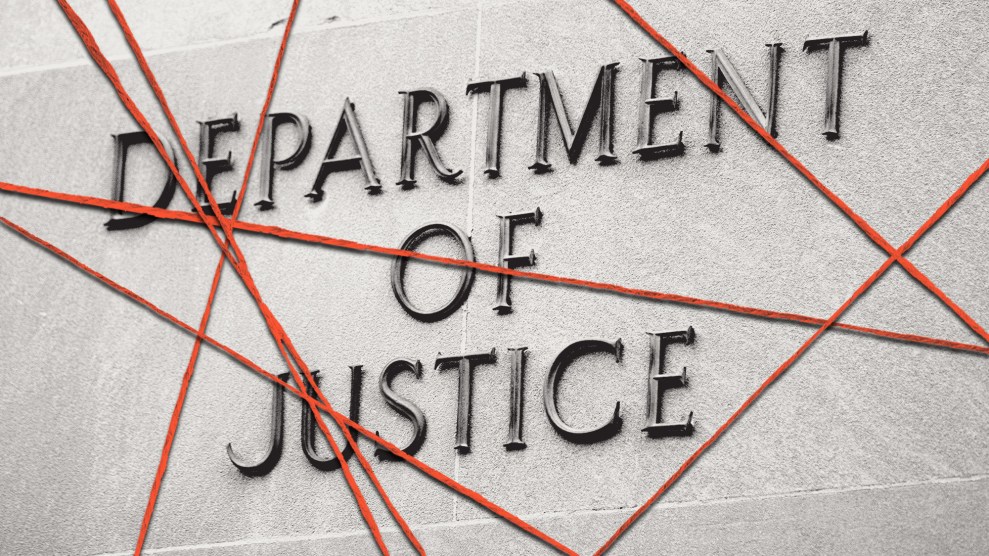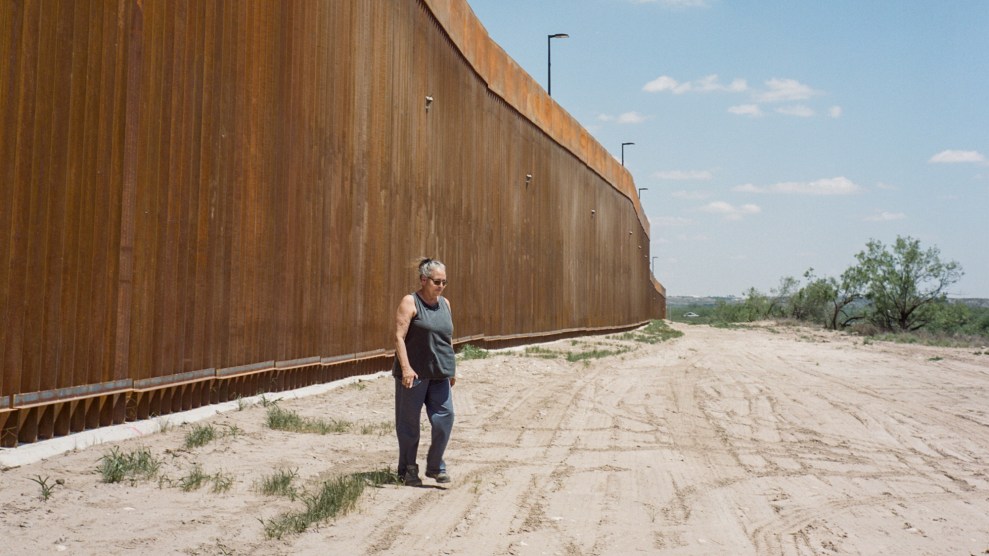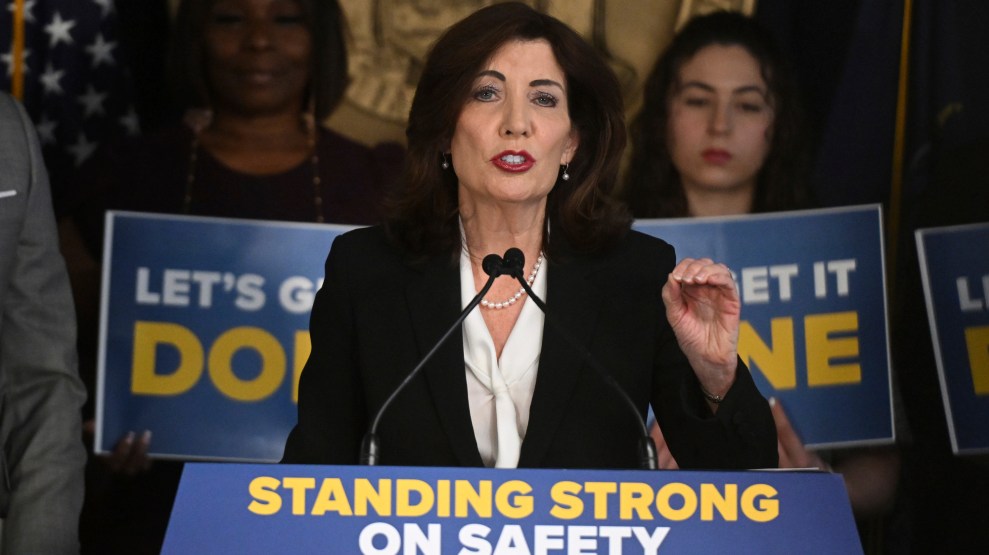Mother Jones: Is there anything to offsets, or are they just a way of assuaging our guilt?
Charles Komanoff: I’m an economist and I’m supposed to have an erudite position on this, and I just don’t. I just think it’s really repugnant because it is a way of buying indulgences. It is a way of seeming to be green without really being green.
MJ: But could it work if we got it right?
CK: I don’t think so. I don’t understand why you just wouldn’t have a carbon tax instead. And, in fact, these offset prices are so tiny. That alone makes me think it’s a scam. We are starting to hear a kind of “buyers’ remorse” from people behind the scenes, a feeling among some of the people who work at the big green groups that they backed the wrong horse. It’s kind of understandable how that happened. One thing leads to another. We’ve talked about the acid rain thing and then it was written into Kyoto and it was certainly possible up until 2005 to look at the political landscape and say, “My God, a tax is just out of the question.” The American political landscape is such that a tax is out of the question.
MJ: Pretend the environmental community was behind the idea of a carbon tax. What would it take, politically speaking and policywise, to get that in place?
CK: If that hypothetical were real, then I think we’d be a good part of the way there because we’d be talking about tens of millions of people, of constituents providing political cover and enabling people running for office, people holding office, giving them what they need, giving them the wherewithal, the backbone that they need to do what I think many of them feel privately is the right thing. But they feel, understandably, that they’re going to get cut down if they’re the first ones coming out of the foxhole. It’s the citizenry that has to provide political cover, and who better than greens, you know, with a small G?
MJ: Are there any politicians that you think get it, in terms of the carbon tax?
CK: There are a dozen members of Ways and Means who have introduced carbon tax bills, including Larson (D-Conn.). Lately we’ve really been looking to Canada. And two very hopeful things have been happening there. One is that on July 1 British Columbia put in place the first installment of a real carbon tax, not a token little tax but a real carbon tax with bite. And second is that the Liberal Party, which is the major opposition party against the ruling Conservative Party, has a carbon tax in its national platform. And, by the way, I should never use the phrase “carbon tax” without prefacing it with “revenue neutral.”
MJ: What does that mean?
CK: It means that the total tax take by the government would not increase. That all of the funds, every cent, would be returned either through tax shifting, which is Al Gore’s position (tax what we burn, not what we earn), or through dividends, which is literally dividing the carbon tax revenue pie by 305 million, every person living in the US.
MJ: So people would literally get a check?
CK: Yes. They wouldn’t get it once a year. If everybody got a check once a year it would be a very big check and it’s sort of it’s too much and it’s too infrequent. People would need to get a check at least quarterly and maybe even monthly. In the same way that people got the economic stimulus package checks. But this would be recurring. It’s what Alaska does with the oil revenue, and it’s not that different from what British Columbia began on July 1. So we’re hopeful that as the Canadian model takes hold there that will be another fact on the ground that advocates can build on here.
MJ: Is the Canadian one revenue neutral? So do people get dividends?
CK: Just before July 1 every resident of BC got a $100 check. And then starting on July 1 personal income tax rates and small business taxes decline and the Finance Ministry claims to have worked this out in a way such that the total drop will be equal to the take, so that it’s revenue neutral.
MJ: Is there any concern that for the biggest polluters this would matter so little that they would just keep on polluting the way they’re doing now because they can afford it?
CK: A carbon tax would do two things to move business toward less carbon emissions. One is that it would increase the cost of using or wasting carbon, but second is that it would focus attention. It would enable people within any business who desire to become more energy efficient leverage. With the carbon tax it would be phased in or ramped up. The amount would be known at least some years in advance, so bean counters within corporate America could point to investments that right now are not good for the bottom line for energy efficiency. They can have greater leverage once they can show that the returns are going to get greater and greater.
MJ: If it all worked out how you’re planning, would a carbon tax fix global warming?
CK: No. It’s one of those necessary but not sufficient conditions, necessary but not sufficient things. Is it going to make it safer for me to ride a bike in New York City? Hardly. It’ll mean a few fewer SUVs and it’ll mean somewhat less car traffic on the road, and it’ll improve the cultural profile of cycling because it’ll be seen to be more virtuous. It will help. But will that by itself create separated bike lanes? Will that cause car lanes and truck lanes to be taken out of services and be devoted to cycling and walking? No. So it’s helpful and necessary.
On any given day there are millions, if not billions, of decisions that are being made in the US that collectively determine how much carbon is being emitted. Decisions as little as whether a person puts the pedal to the metal to get a burst of speed to save 15 seconds or what kind of car a family buys. Whether they buy two cars or seek to live in a transit-oriented development or buy a house that’s 50 miles away from the workplace. And the same thing for businesses and institutions. All these decisions are constantly being made, and they need to be pushed further toward the low carbon end of the spectrum.
MJ: Some people believe personal conservation won’t make a difference in the long run. Do you agree?
CK: I couldn’t disagree more. I think that’s a cop-out, it’s false, and viewing this as either/or is the biggest lie of all because committing yourself to doing these things—the CFLs and the biking, and carrying the bag to the store—that only makes you even more likely to organize within your community or to press your elected officials or to lobby. Being able to make these changes, if just a 10th of the US population did these things regularly, these things would show up in the statistics, and I think culturally we’d get a lot closer to the tipping point. So I’m very much on the other side of that equation.
MJ: Let’s talk about road pricing.
CK: The idea of a carbon tax, philosophically, is that it’s the idea of protecting the commons. The atmosphere is a commons. It’s something that we all hold in common. And if some of us, if all of us, are allowed to pollute the commons without having to pay a price for it then we’re all going to have to pay a price for it if we use more than is sustainable. Knowing what the price is—that’s difficult to set—no one’s ever going to know it exactly. But we all know that the appropriate price is not zero.
The same thing applies with transport and especially with cars. We all make decisions: Are we going to drive today? How far? When and where are we going to drive? And we factor into that what it’s going to cost us. But very few of us factor in the idea that if we choose to drive, it’s going to slow down every other vehicle on the road system a little, little bit. But when you add up all the people who affect it a little bit, the total effect would be great. I did a calculation last year that every additional car driven into midtown Manhattan during the daytime imposes about $40 in time costs on all the other vehicle users. And I didn’t even count the cost it imposes on cyclists and walkers. And this had nothing to do with air pollution or the risk of running somebody over or global warming or noise. It was simply how much time each driver is, in effect, stealing from everybody else. And it’s not that people are evil; it’s just that our pricing isn’t set up to reflect that or capture that. And the whole thing with road pricing is it’s really analogous to carbon pricing, that things will work better for the vast majority of people if the price to drive includes at least some of the cost that we impose upon others.
MJ: So this plan would make it much easier to live in a city than to live rurally.
CK: This thing that we’re talking about would advantage cities vis-à-vis suburbs. And to a certain extent this is true of rural areas, although there’s at least the ideal in rural areas that at least you’re homesteading or you’re working a piece of land and you’re not traveling 40 miles each way for a job. I mean, that’s sort of suburbia.
MJ: Except that a lot of rural people have to do a ton of driving.
CK: Well, you’re right; it’s certainly something that’s going to get more expensive with carbon taxes. It would probably be more effective with carbon taxes than with road pricing, because a lot of shipping can be done at night when the road pricing wouldn’t change as much, but shipping can be moved from truck to rail, from less efficient trucks to more efficient trucks, trucks don’t have to deadhead half the time, and with the local food movement, food doesn’t have to get shipped thousands of miles. There are alternatives. This doesn’t mean that the alternatives are painless or equally available to everyone or instantly available, but correct pricing will unlock the door and it will enable alternatives to flourish, or at least to compete equally. That idea is common to both road pricing and carbon pricing. But I’m one of those people who believe that cities are inherently much more sustainable. Let’s just say compact development is essential to sustainability. It probably goes hand in hand with my love of nature. I want the open spaces that are out there to be able to remain undeveloped and untrammeled.
Photo from flickr user JDWnyc used under a Creative Commons license.


